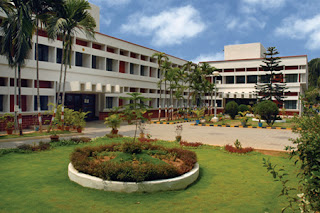The Top Ways Artificial Intelligence can help Space Exploration
Elsewhere, scientists are using AI-powered telescopes to detect objects in space. Even the national remote sensing centre is extensively using AI and Machine Learning to analyse raw data from remote sensors. An extensive number of scientists are using AI as a powerful discovery tool to assess rich and complex data.
In simple words, AI is making it possible to explore a whole new world of infinite applications associated with astronomy. From creating missions to analysing complex space data, here are a few ways AI can help us with space exploration.
AI in Astronomy & Space Sciences
AI is increasingly expanding its influence in space sciences and astronomy. Researchers are creating intelligent assistants to help astronauts in outer space. These AI-based assistants could be pretty valuable for space exploration projects in the future.
AI-based virtual assistants can potentially identify any dangers in lengthy space missions. They can even recognise alterations in the temperature within the spacecraft. Based on its findings, it can send emergency notifications to the crew.
Processing of Data obtained from Satellites
Each observation satellite transmits vast amounts of data based on Physical Sciences. The ground stations receive data in chunks over an extensive period of time. AI can come to the rescue of researchers to analyse this vast amount of data.
Scientists are already using AI in various other fields to process complex data in a short time. AI plays a crucial role in combining meteorological data with satellite imagery. AI is also helping space scientists with solar radiation estimation.
In simple words, AI is helping satellite monitoring stations to predict satellite health issues and their overall performance. With the evolution of science and technology in India, space stations are using AI to make processes simpler and faster.
Mission Development and Planning
Planning a mission to a planet is not easier. However, AI can make it easier. New space missions usually rely on previous data for their success. But often, this information comprises serious errors which can compromise the success of the mission.
AI ensures data continuity and provides precise information to design engineers. Researchers are already working to develop a design engineering assistant. This would help decrease the time taken by manual labour. AI is already boosting space technology innovation in India. In the future, we would witness design engineering assistants creating inter-planetary missions.
AI is also playing a crucial role in developing advanced navigation systems for space. We have various tools like Google Maps to explore and navigate. But for extra-terrestrial bodies, there is no such system. The virtual moon map created by NASA in collaboration with Intel is one such example of AI. Let’s hope that AI will unlock new potential in the future for space researchers.
The Department of Space & ISRO is accessing raw data from remote sensing satellites. They are using advanced algorithms to predict weather patterns and natural disasters.



Comments
Post a Comment